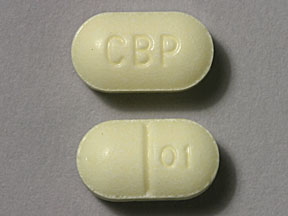Methscopolamine / Pseudoephedrine Dosage
Applies to the following strengths: 2.5 mg-120 mg
Usual Adult Dose for:
Usual Pediatric Dose for:
Additional dosage information:
Usual Adult Dose for Allergic Rhinitis
1 tablet (2.5 mg-120 mg) orally every 12 hours.
Usual Adult Dose for Cold Symptoms
1 tablet (2.5 mg-120 mg) orally every 12 hours.
Usual Adult Dose for Sinusitis
1 tablet (2.5 mg-120 mg) orally every 12 hours.
Usual Pediatric Dose for Allergic Rhinitis
12 years or older:
1 tablet (2.5 mg-120 mg) orally every 12 hours.
Usual Pediatric Dose for Cold Symptoms
12 years or older:
1 tablet (2.5 mg-120 mg) orally every 12 hours.
Usual Pediatric Dose for Sinus Symptoms
12 years or older:
1 tablet (2.5 mg-120 mg) orally every 12 hours.
Renal Dose Adjustments
Pseudoephedrine is eliminated by the kidney and may accumulate in patients with renal dysfunction. Patients with renal dysfunction should be monitored for signs and symptoms of toxicity when using pseudoephedrine.
Liver Dose Adjustments
Data not available
Precautions
Do not exceed 2 tablets in 24 hours.
The FDA has not approved use of over-the-counter cough and cold medications to children aged less than 2 years, and proper dosing for children in this age group has not been studied. Clinicians should be aware of the risk for serious illness or fatal overdose from administration of cough and cold medications to children aged less than 2 years. Clinicians should be certain that caregivers understand 1) the importance of administering cough and cold medications only as directed and 2) the risk for overdose if they administer additional medications that might contain the same ingredient.
Dialysis
Pseudoephedrine is partially removed by hemodialysis, therefore doses should be given following dialysis sessions.
Other Comments
Do not crush or chew tablet. Tablets may be broken in half if necessary.
More about methscopolamine / pseudoephedrine
- Check interactions
- Compare alternatives
- Side effects
- During pregnancy
- Drug class: upper respiratory combinations
Related treatment guides
Further information
Always consult your healthcare provider to ensure the information displayed on this page applies to your personal circumstances.

